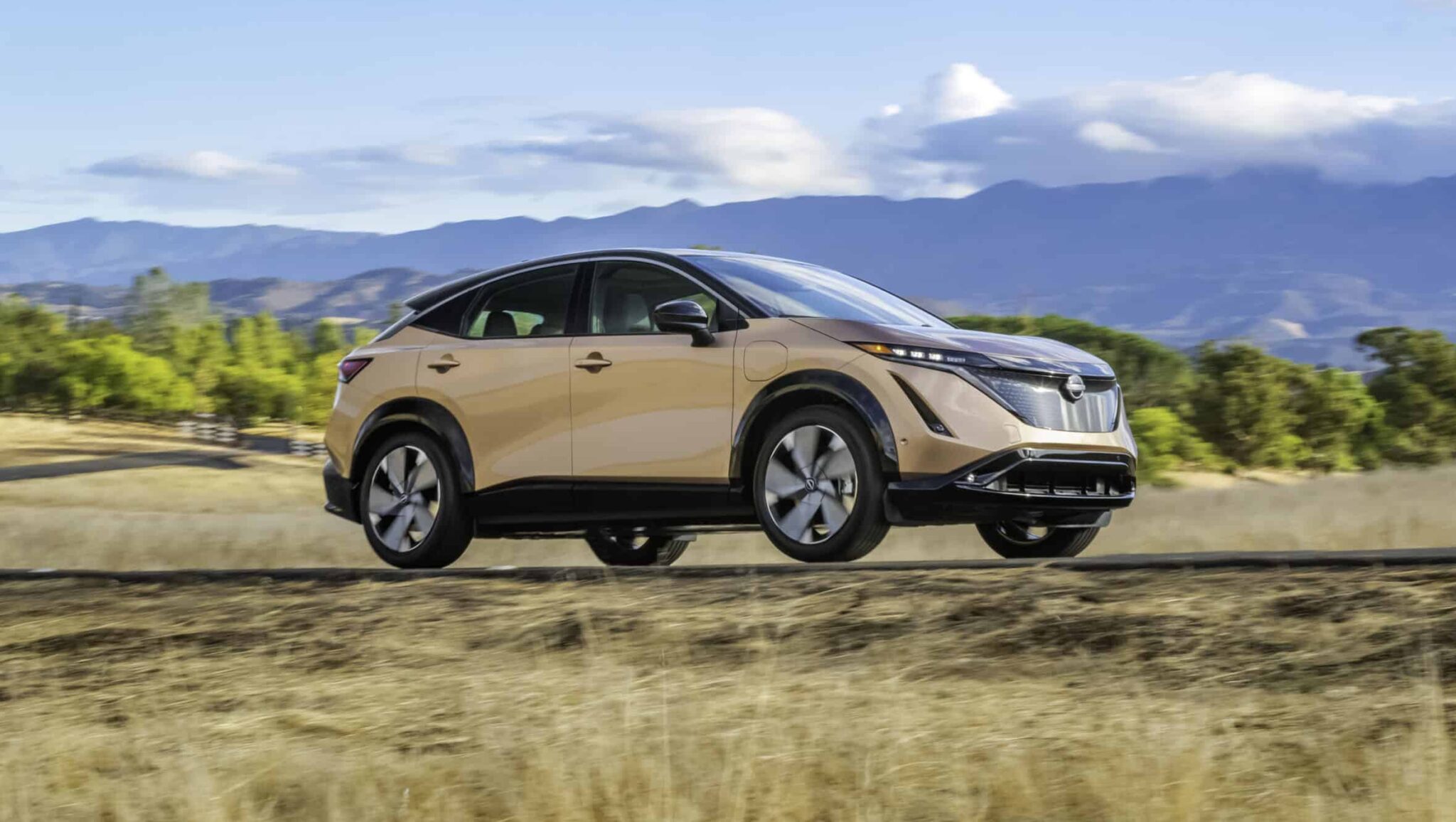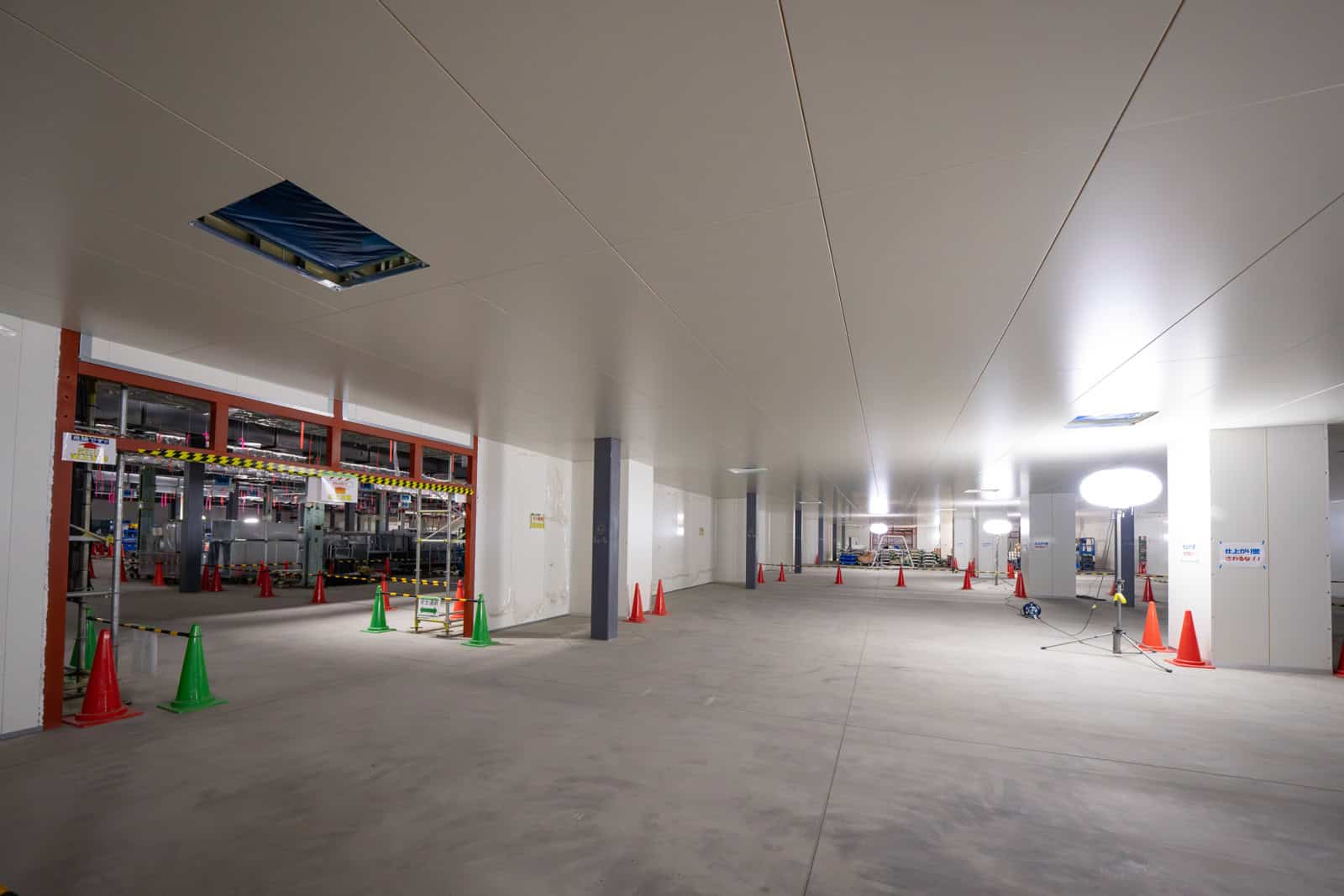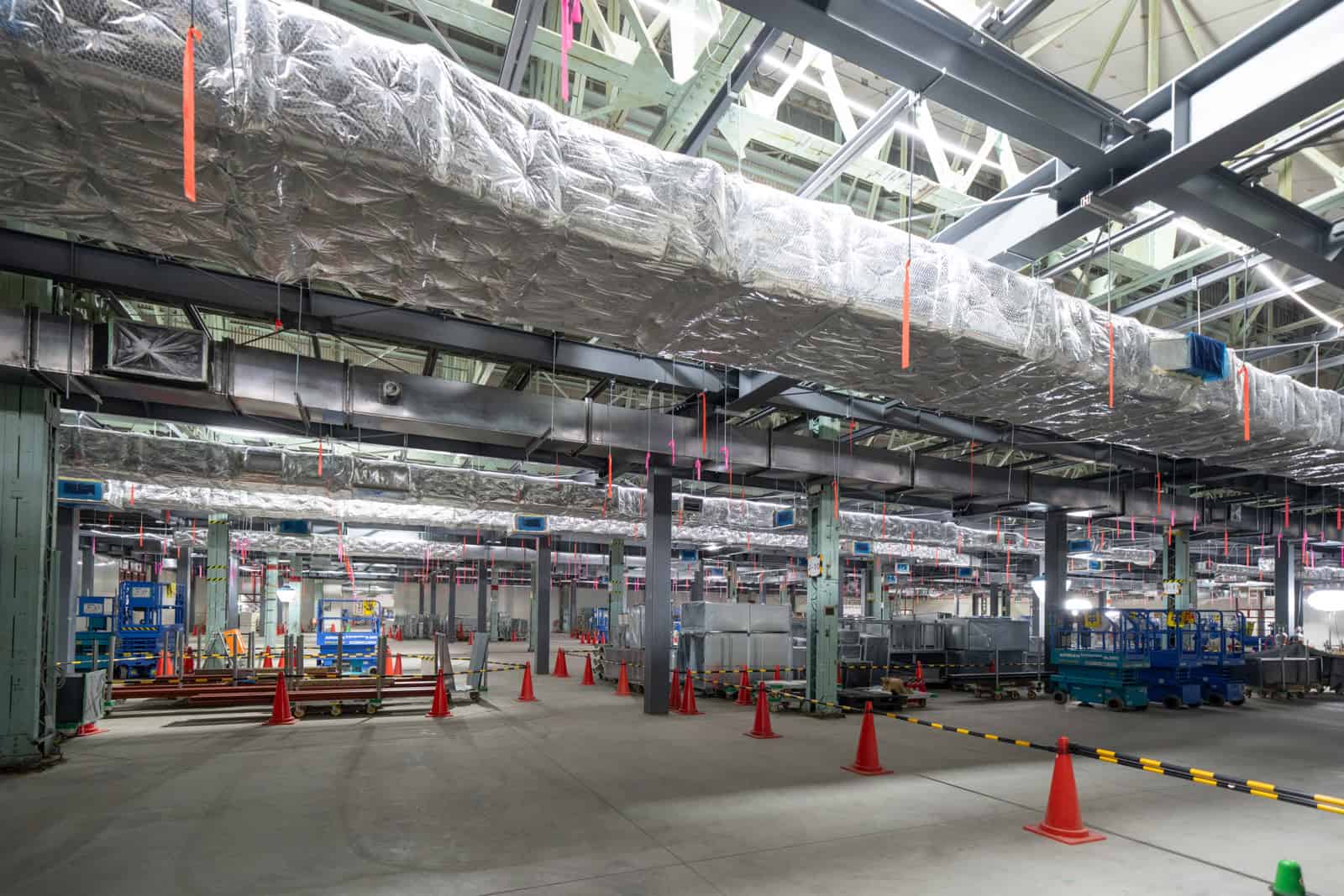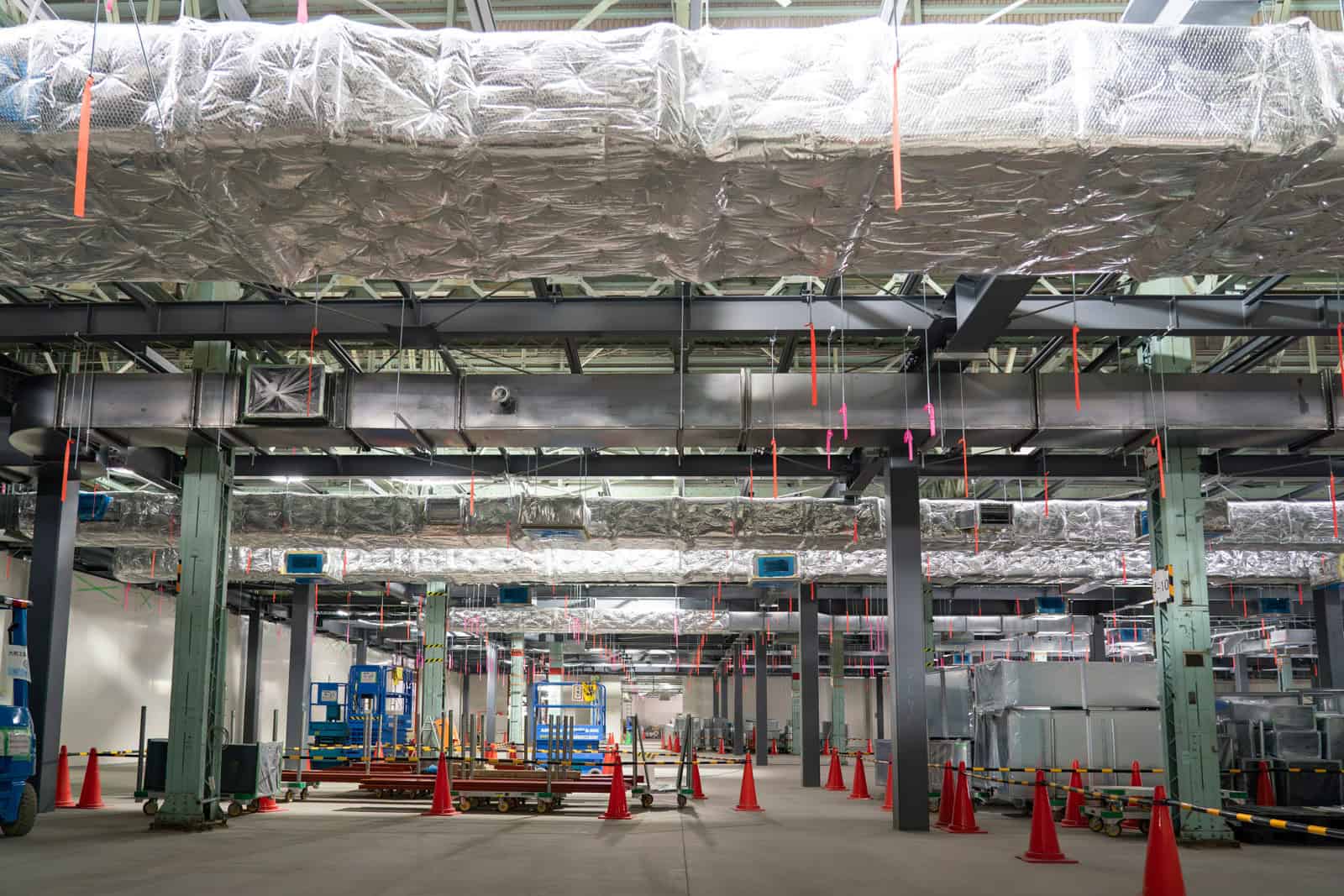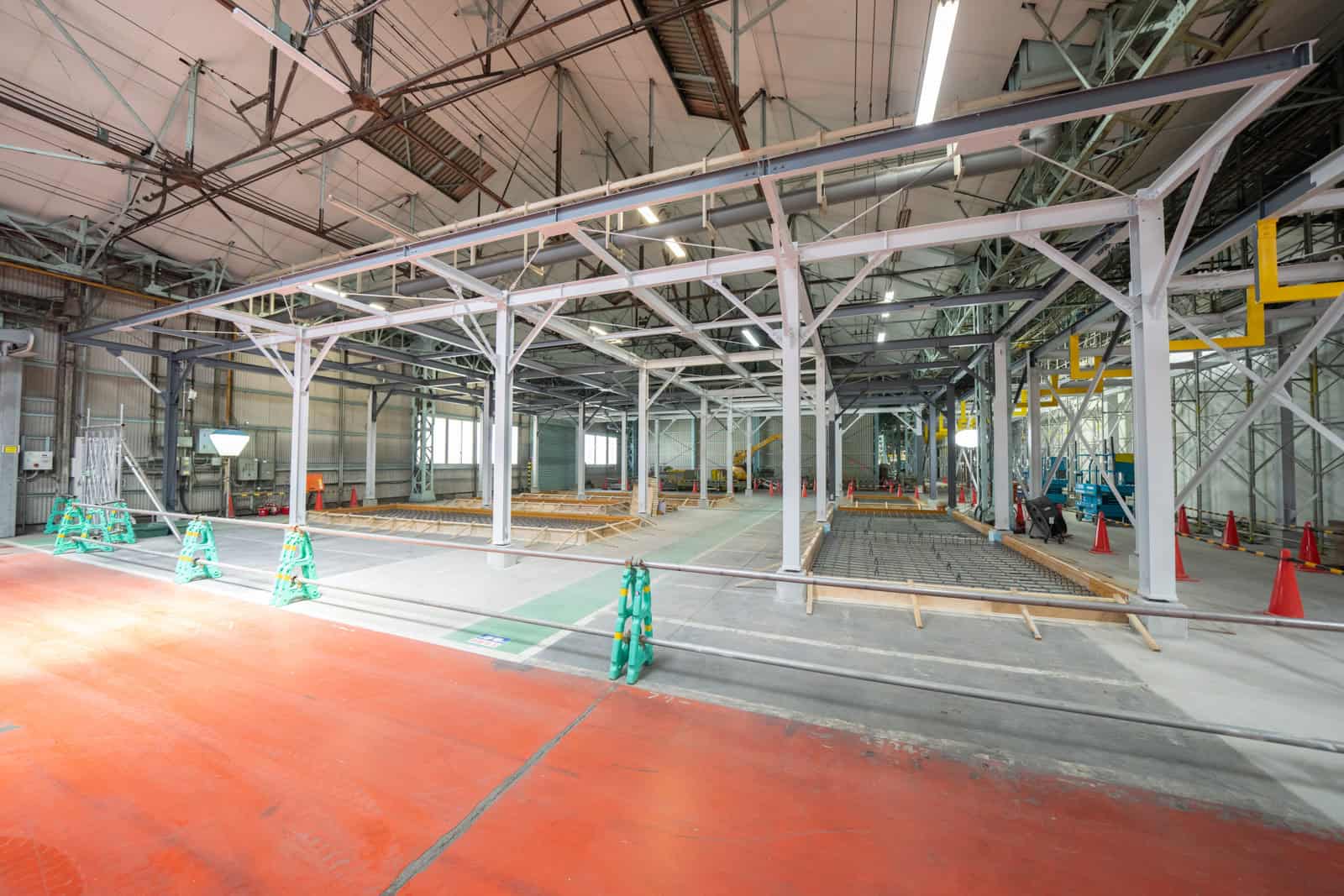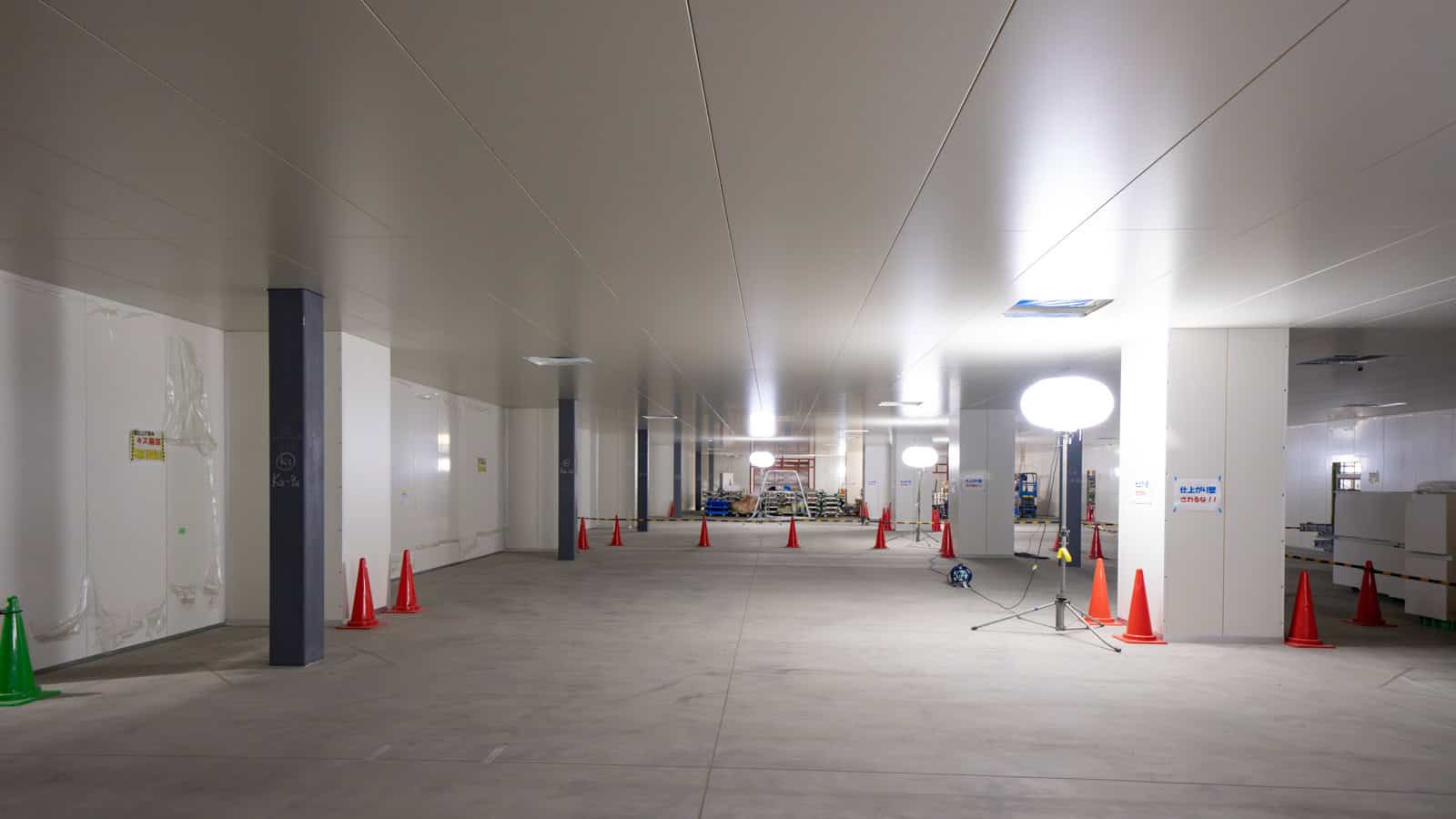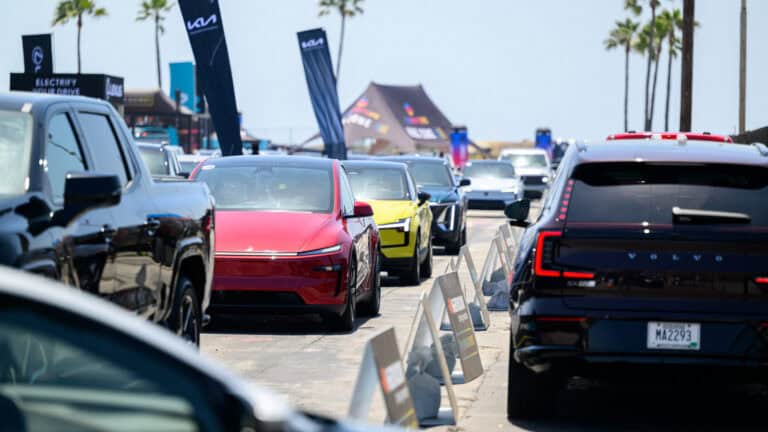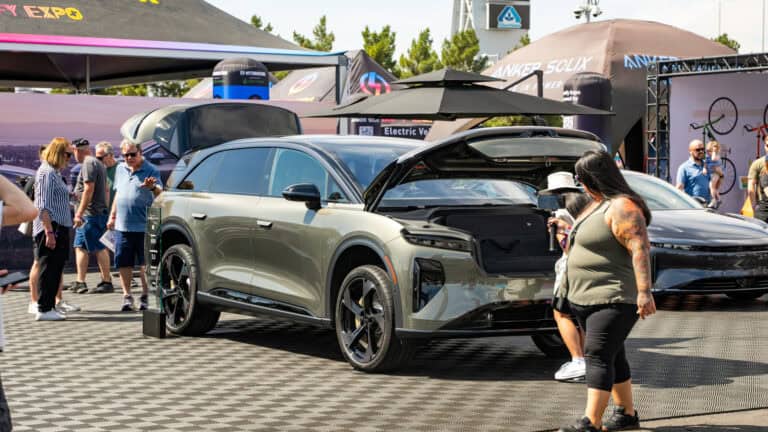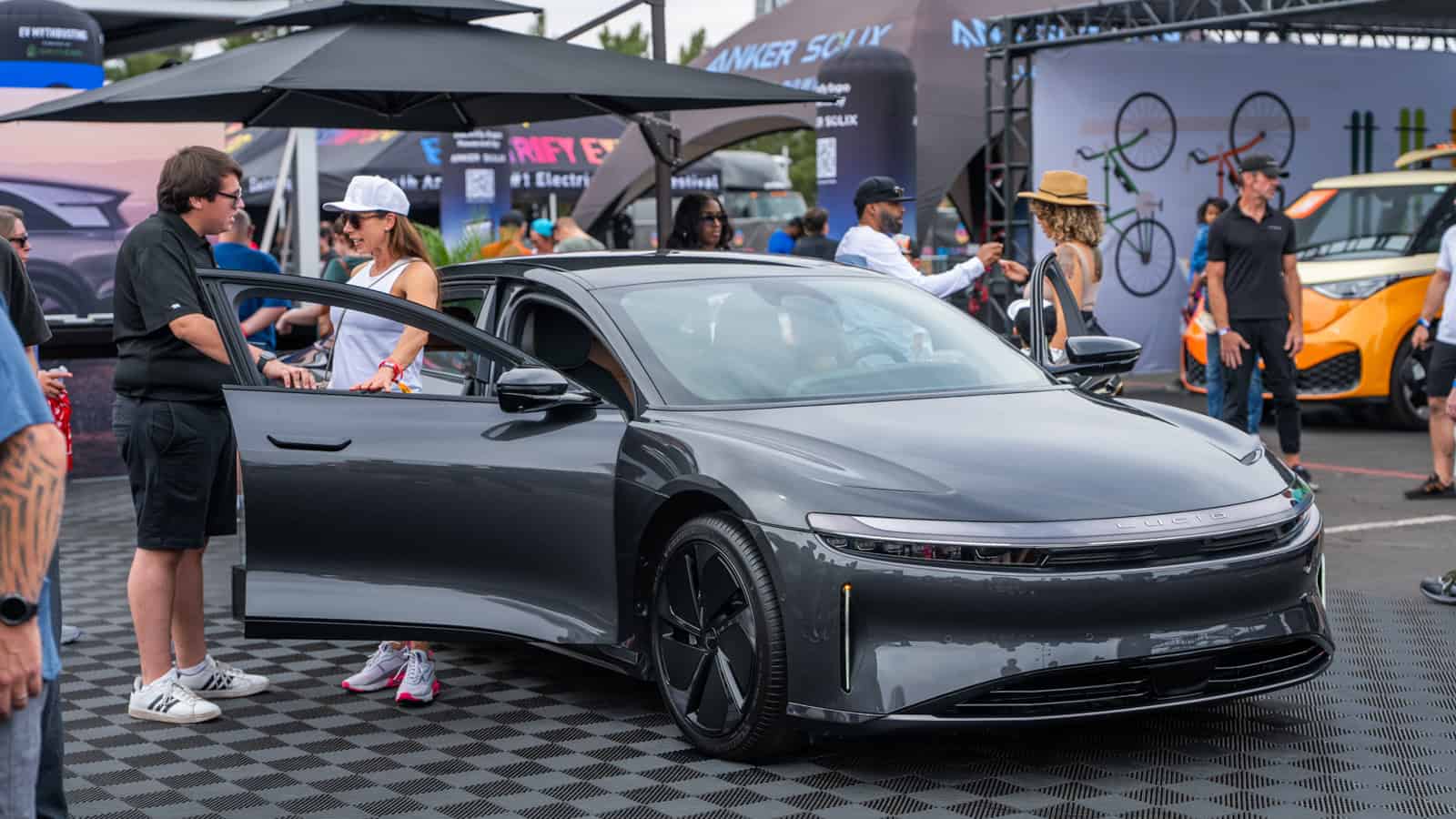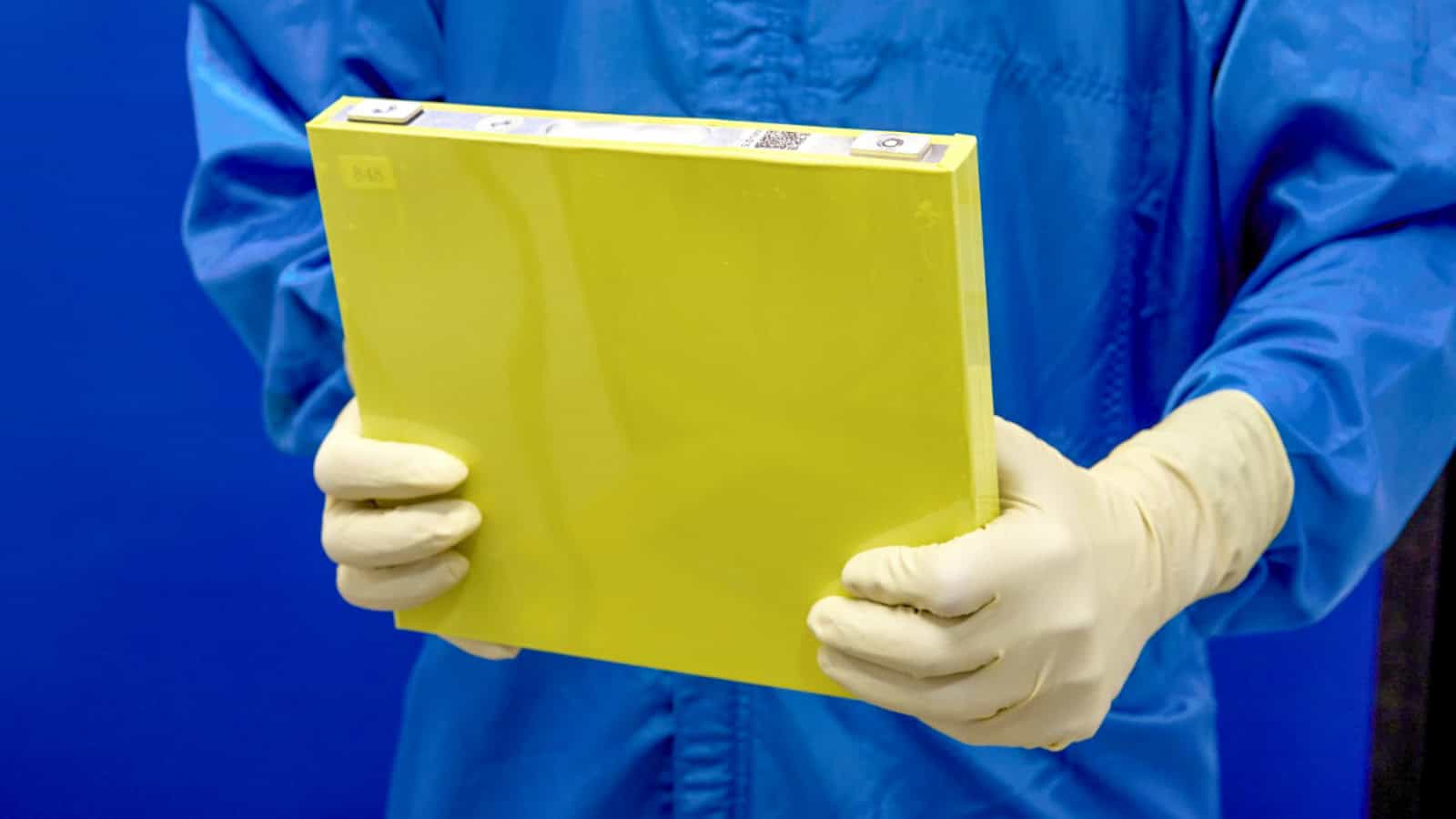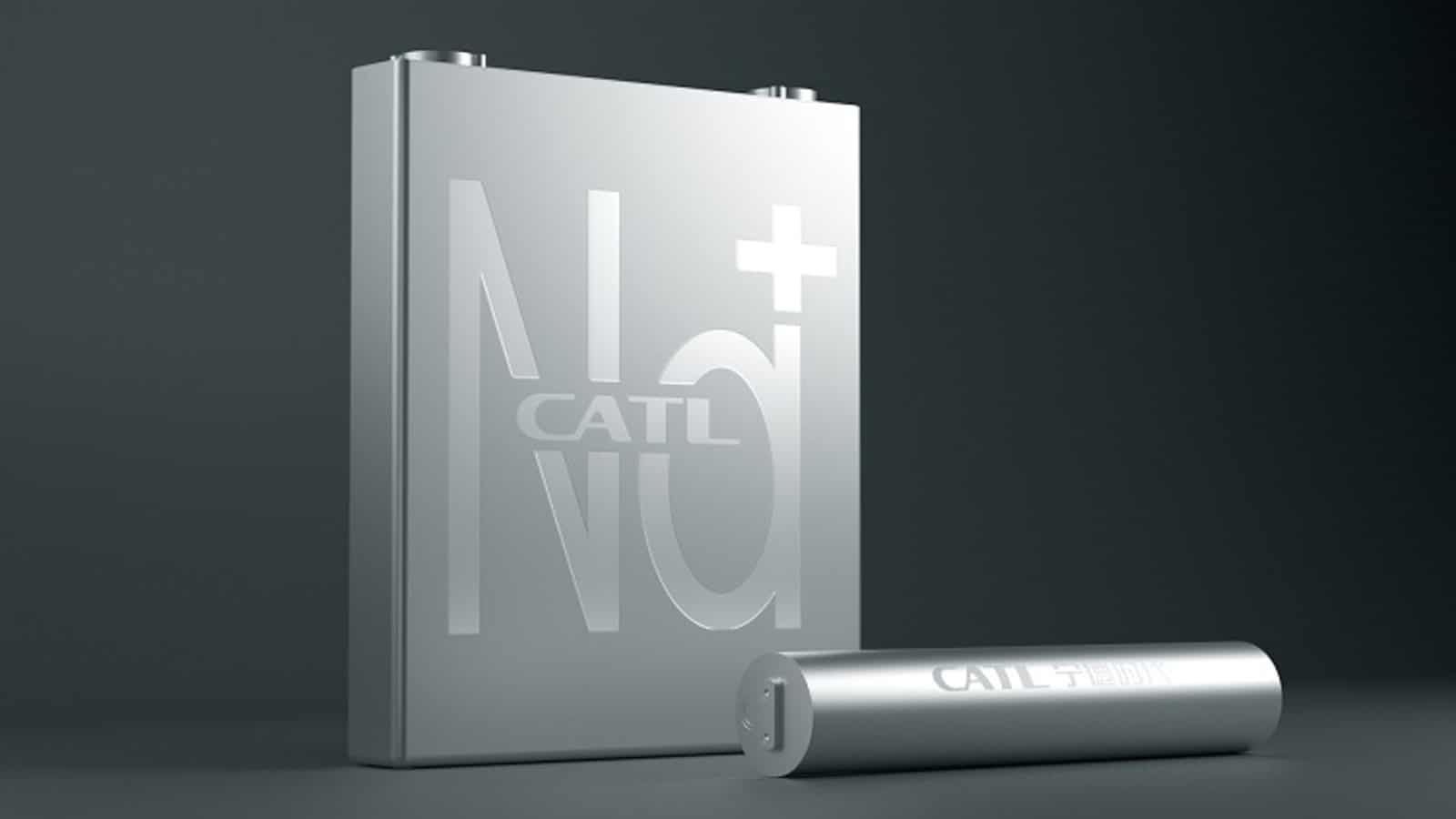- Nissan plans to launch its EVs equipped with all-solid-state batteries (ASSB) by fiscal year 2028.
- Toyota and partner Idemitsu Kosan said they would develop and mass produce all-solid-state batteries, which they aim to bring to market in 2027 or 2028.
- Other EV companies are planning to introduce solid-state batteries, including Mercedes, Volkswagen, Hyundai, Renault, Mitsubishi, and NIO.
All-solid-state batteries (ASSB) are a promising new battery technology expected to replace lithium-ion batteries, which are currently used in electric vehicles, electric bikes and motorcycles, electronic devices, power tools, solar energy home and business installations, large grid-scale energy storage, and more.
ADVERTISEMENT
Nissan Shows All-Solid-State Battery Pilot Line at its Yokohama Plant
In April, Nissan gave the press a sneak peek at its in-construction all-solid-state battery pilot line at its Yokohama Plant in Kanagawa Prefecture in Japan. Nissan plans to launch its EVs equipped with the all-solid-state batteries (ASSB) by fiscal year 2028.
Nissan’s all-solid-state batteries are a part of its bold plan Nissan Ambition 2030, unveiled in November 2021. As a part of the plan, Nissan plans to introduce 27 new electrified models, including 19 new EVs by fiscal year 2030. The company is aiming for an electrification mix of 55% globally across the Nissan and INFINITI brands by 2030.
In April, Reuters reported that Nissan expects to make its first solid-state batteries at the Yokohama site beginning in March 2025. The company plans to deploy 100 workers per shift to step up production to 100 megawatt hours per year, from its fiscal year starting in April 2028.
Competitors Are Planning Solid-State EV Batteries
Other EV companies are planning to introduce solid-state batteries, including Mercedes, Volkswagen, Toyota, Hyundai, Renault, Mitsubishi, and China-based NIO. In 2023, Toyota and partner Idemitsu Kosan said they would develop and mass produce all-solid-state batteries, which they aim to bring to market in 2027 or 2028, followed by mass production. It will be interesting to see which EV company will release ASSBs first.
At present, Tesla has not decided to go down the ASSB path. The Tesla 4680 battery’s chemistry is lithium nickel manganese cobalt oxide (NMC) with a graphite anode. A novel manufacturing process helped to shrink the 4680’s manufacturing footprint to one-third.
Solid-State Batteries Use a Solid Electrolyte
The lithium-ion batteries commonly used in EVs today have a liquid or gel electrolyte solution in between their cathodes and anodes. The defining feature in solid-state batteries is that they use solid electrolytes.
Solid-state batteries theoretically offer much higher energy density because of the ability to use metallic lithium for the anode and oxides or sulfides for the cathode.
Solid-State Batteries Have Numerous Benefits
Because ASSBs are solid, they are generally described as highly safe. ASSBs are resistant to temperature, and not prone to deterioration. Solid-state batteries are considered a technology of the future for electric vehicles, and they will probably be the next big step in battery development due to their higher density.
ADVERTISEMENT
ASSBs will offer a longer range, have a longer lifespan, and be lighter than lithium-ion batteries. Fewer materials are used in producing solid-state batteries, which could reduce their climate impact by 39% compared to lithium-ion batteries. Solid-state batteries could possibly take as little as 10 or 15 minutes to deliver a charge up to 80% in an EV.
All-Solid-State Batteries Offer Increased Range
Because of theoretically much higher energy density, combined with lower weight, ASSBs are expected to offer much greater range for EVs. The increased density means solid-state batteries can hold anywhere between two to 10 times the capacity of a lithium-ion battery, with the promise of being a game-changer when released to the EV industry.
Two versions of Toyota’s ASSBs are planned, with ranges of 621 and 745 miles, according to Toyota. The average range of EVs in 2023 was 291 miles.
Harvard Engineers Announce Revolutionary Solid-State Battery With Unprecedented 6,000 Cycle Life
Researchers have struggled with bringing ASSBs to market. The problem of dendrites forming on the anode’s surface is a major problem which has plagued researchers of solid-state batteries. Harvard’s SEAS lab may have a solution that will solve the problem for EV battery manufacturers.
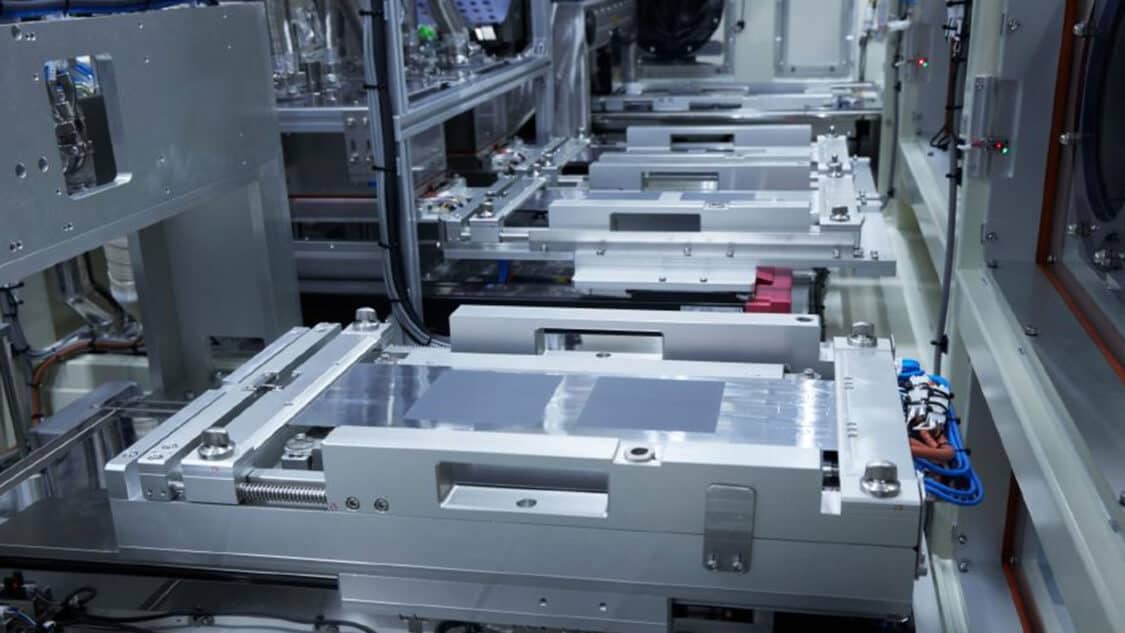
Researchers from the Harvard School of Engineering and Applied Sciences (SEAS) unveiled a solid-state battery technology in January 2024 that may revolutionize the industry. With an astonishing capability of 6,000 charge/discharge cycles, this innovation surged ahead of existing battery solutions, setting a new benchmark for longevity and efficiency.
Published in the prestigious journal Nature Materials, the team’s research addresses the critical issue of dendrite formation, a problem that has long plagued battery durability and safety. Originating from an initial proposal in 2021 to tackle dendrite growth through a novel multi-layer battery design, the Harvard team’s latest breakthrough comes from incorporating micron-sized silicon particles into the lithium metal anode. This technique not only hinders unwanted reactions but also promotes a uniform lithium plating process, ensuring a smoother anode surface and significantly reducing the risk of dendrite formation.
Perhaps most impressively, this cutting-edge battery can be recharged in a mere 10 minutes, offering unprecedented efficiency alongside its enhanced lifespan.
Will ASSBs Be the Future Battery Standard for EVs?
During the three or four years from now that ASSBs are expected to make their debut, a lot could happen to prevent the ascent of ASSBs, including a competing battery technology. Some of those are graphene, lithium metal, sodium-ion, semi-solid-state, lithium nickel manganese cobalt oxide, the next-generation lithium-ion battery (NGLB), and more. What does the EV battery future hold? Only time will tell.
ADVERTISEMENT

IMAGES: NISSAN
FTC: We use income-earning auto affiliate links. Learn more.


